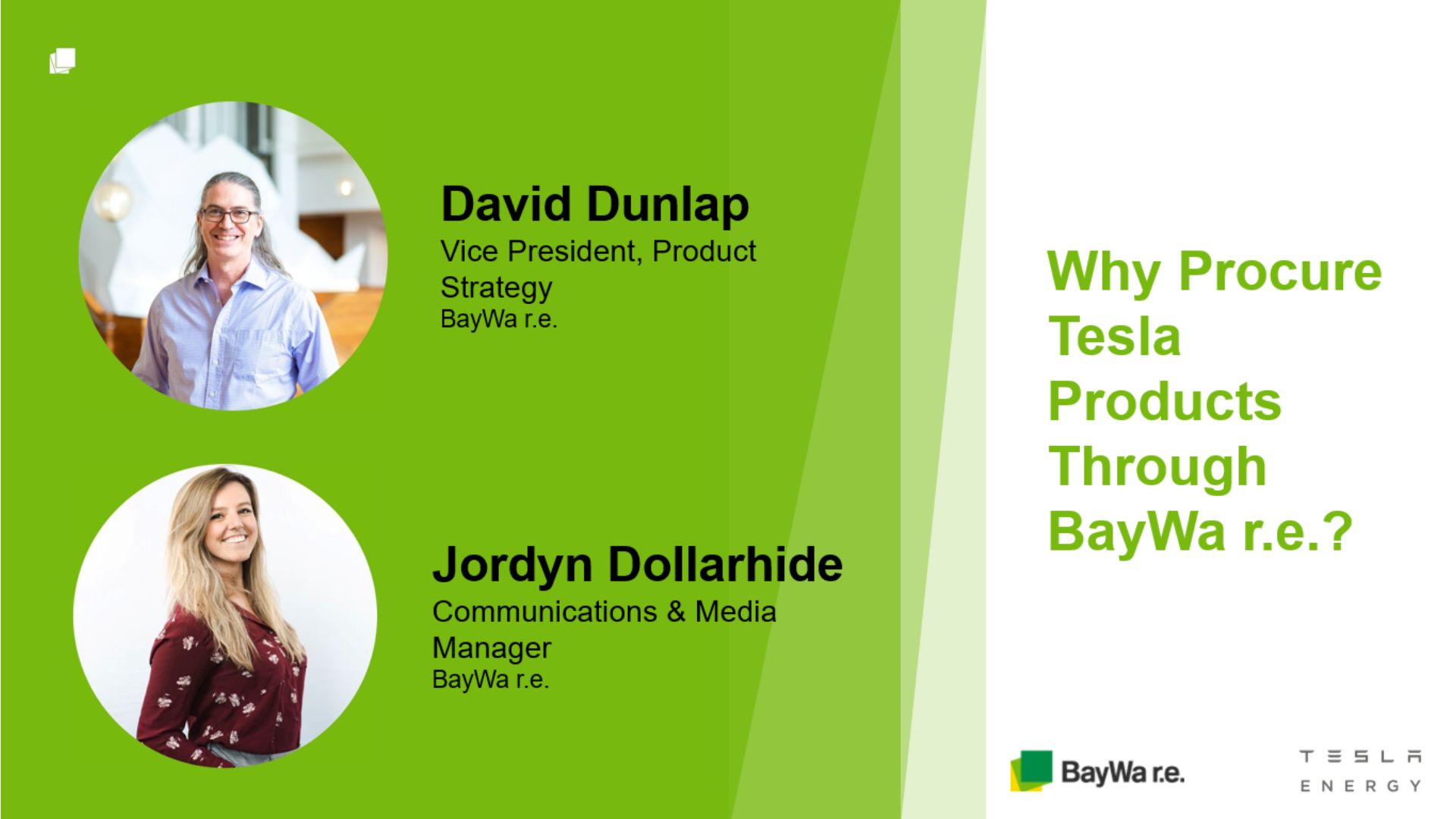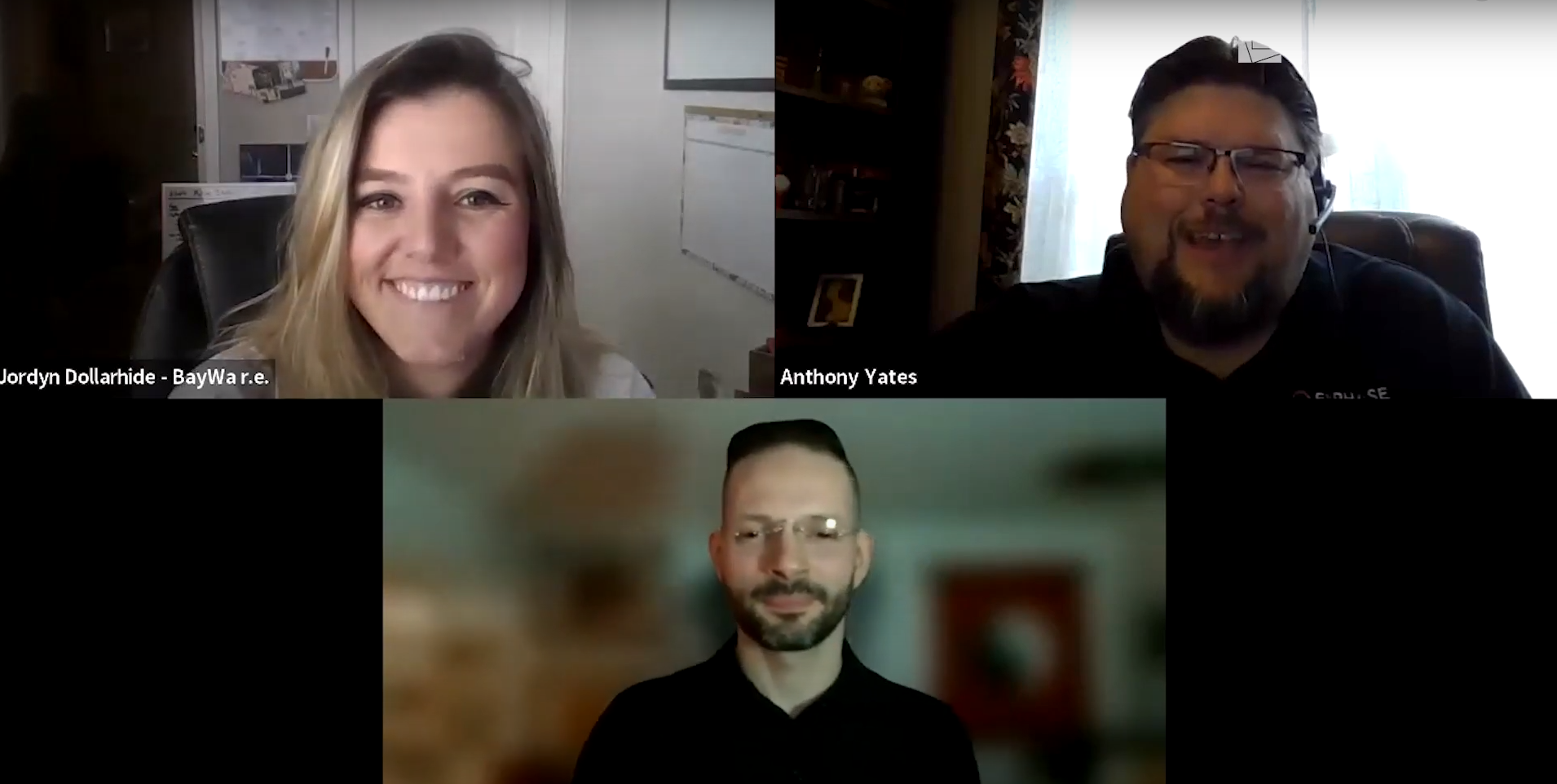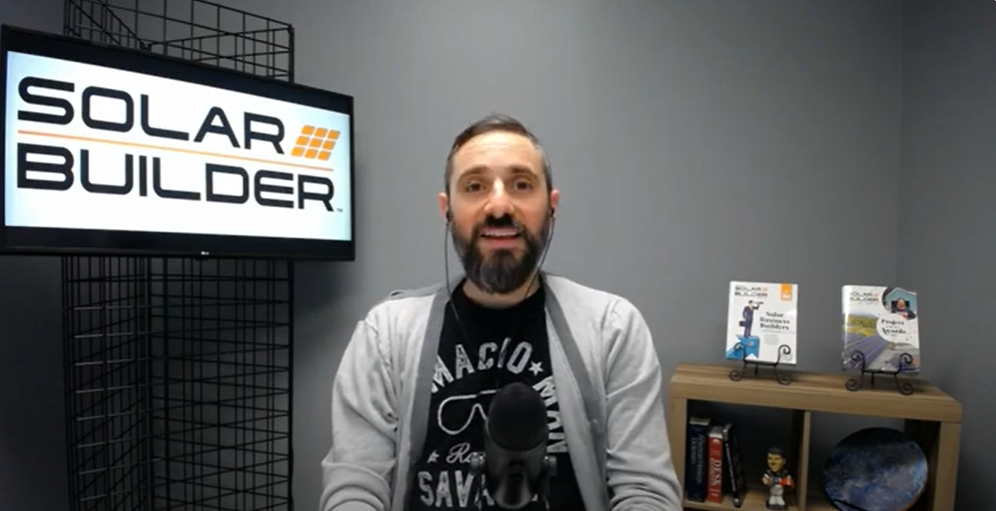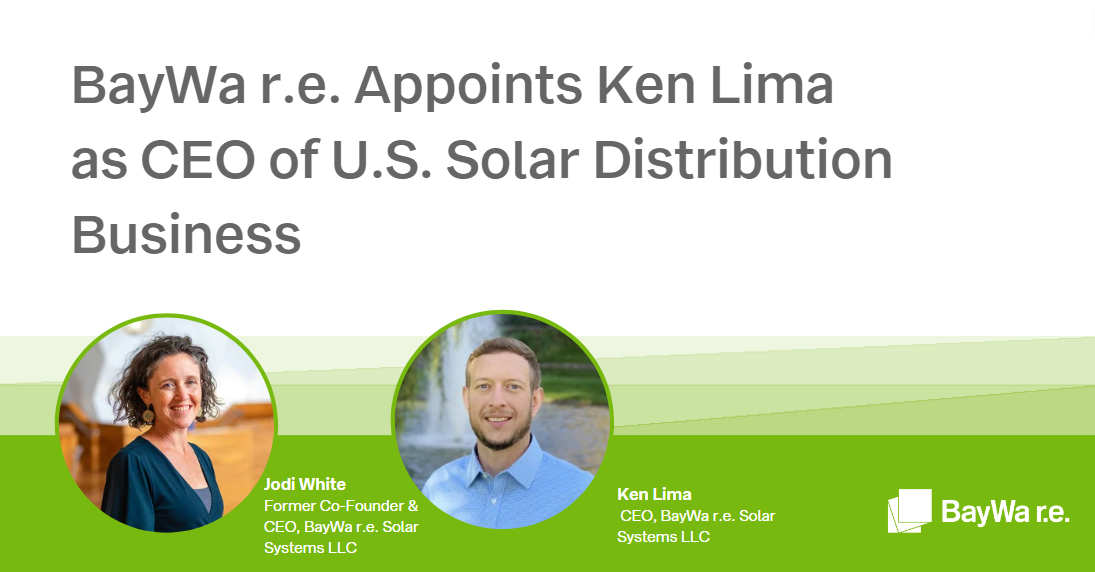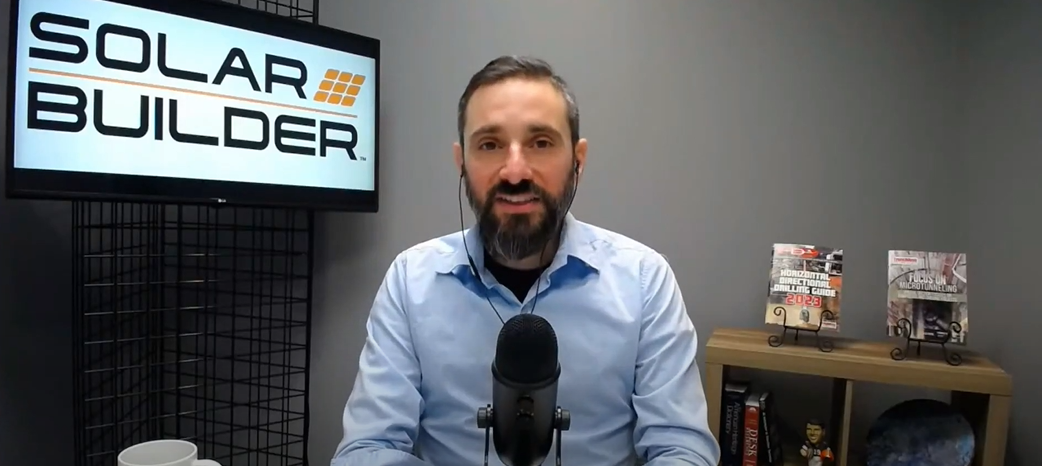
When you work in solar, Earth Day becomes a particularly special holiday. Not only is it a chance to personally reflect on our climate impact, both good and bad, over the past year, but it’s also an opportunity to welcome new people into the industry. After all, what’s better than having even more mission-driven colleagues and friends to help us tackle climate change?
One curious thing I noticed is that many newcomers to solar are surprised to learn that solar professionals come from all across the spectrum and that most of us did not begin our careers in solar. Solar wasn’t plan A or plan B. It was more like plan Z. We somehow fell into the industry by happy accident and then fell in love with the technology and community.
To use my own journey as an example, I graduated with a PhD in physics. I knew I wanted to work on climate, knew I wanted to leave academia, but I did not know what opportunities were actually available to me. (The only recruiters at my school were consulting firms and hedge funds.) Somehow, I landed at Shell Oil for my first job. Over the course of 10 years and multiple companies, I zigged and I zagged. I mixed exotic molten salts for thermal storage, wildcatted for oil in the Golan Heights, and sent robotic sailboats to explore the oceans.
Then one day, I was listening to my kid’s favorite song “Electric Car” by They Might be Giants and thought to myself, “What am I doing? How did I get here?”
So, I charted a different course, one that aligned with my original motivation to tackle climate change. The difference this time — I understood better the energy landscape and the opportunities that were available to me. I also now had a professional network to help support me.
As a first step, I published an analysis of the income distribution of solar in Austin. Then I founded Bodhi. What I love most is talking and collaborating with other solar professionals. That’s how I realized this was the industry for me.
My unconventional career trajectory is proof that you don’t have to have a strong background in renewable energy in order to succeed. Instead, there are just a few things you need to keep in mind. Below, I’m sharing my top tips for a successful career in solar.
Tip #1: Just get in
You do not necessarily need to land your dream job in solar right at the outset — especially because you might not even know what it is yet! Instead, just focus on getting your foot in the door. One woman I know, Sarah Matchett, literally got her start on people’s rooftops. She knew she wanted to break into solar but didn’t know how. So, she approached a local installer and was able to intern on residential projects for a summer. Three years later, she’s now the business development manager at DWS Energy, a major solar EPC.
At the beginning of your career, don’t give too much thought to where in the industry is the optimal job. In solar, there’s so much to do that even if you come in doing one thing and one role, as long as you’re motivated, you can easily learn the skills and grow into a different role. Focus on finding an entry point, learning the industry’s jargon, and the rest will follow suit.
Tip #2: Results speak louder than degrees
This is an industry that doesn’t care what you majored in or what titles you held in your pre-solar career. What it does care about is the ability to get things done. For example, Jenna Neumann, the president of iVee League Solar was first a fifth grade teacher. How did she make the switch? “I focused on my transferable skills: An ability to manage chaotic situations, stay organized even in complex work environments, and work with people from all different backgrounds.”
That sounds just like what the day in the life of a solar professional is like, and that’s why her first job in solar as the general manager of a solar installation company was so successful.
If you’re coming from a wildly different career, zoom out and ask yourself what skills you’ve developed that might be beneficial to a solar company. Are you great with numbers? Great with people? Great at project management? Once you’ve defined your talents, figure out the best stories and associated metrics that you can use on your resume and in interviews. And even if you’re already in renewable energy, remember that a relevant title or pursuing an MBA won’t guarantee you your next job. Learning on the job and staying results-oriented are the best ways to have a meaningful and successful solar career.
Tip #3: Find your cheerleader
Once you’ve found your first solar job, it’s incredibly important to find your cheerleader within the company. This is someone who is more than just a mentor. This person isn’t just there to offer you advice — they’re there to open doors and invest in you. My first cheerleader was Harold Vinegar, the Chief Scientist of Shell. I was just a year out of school, but he gave me opportunities to present the status of major initiatives to the leadership team at Shell. He also advocated for my promotion, well ahead of the normal timeline.
If no one in your organization has naturally stepped up to fill this role, don’t be afraid to ask. Choose someone who has the role you want or is part of the team you dream of joining. Tell them that you’d like to have a career similar to theirs. This will flattered them, and they will most likely want to help. Many folks in the solar industry want to bolster new employees. They just may need a little nudge.
Tip #4: The less you talk, the more effective you’ll be
If you’ve spent any time around sales people, you may have heard the old adage: The best way to sell is to not talk. It’s a tip that many sales experts swear by, but the truth is that it’s relevant for far more than just the sales team. No matter what department you work in, or which part of the value chain you represent in solar, the less that you talk, the more you listen, and the more effective you’ll be.
Chances are that if you approach conversations looking to speak only 20% of the time and listen the other 80%, the person you’re talking to will say, “I really enjoyed talking to you.” And with that, you’ve just made yourself a friend, supporter, or a champion.
Furthermore, there is so much to learn and so many things changing in this industry, that the best thing you can do is listen. Use your voice strategically, so that when you speak it’s because you’ve truly understood everyone in the room and can address them in the most effective way.
Tip #5: If you do good work, risks really aren’t risky
As you progress in your solar career, there will be big decisions you have to make or initiatives that you want to pursue that feel risky. The good news is that if you have a history of doing great work, it’s not scary to take what would otherwise be perceived as big risks. While you could still fail at these endeavors, you’ll always have a network of supportive colleagues you can fall back on.
For example, I moved to Israel in 2010 to join a startup. At the time, leaving a promising career at Shell and moving my family (wife, 1 year old kid, dog, and cat) 7000 miles away to a foreign country that always made the evening news seemed like a huge risk. However, I realized that even if I failed, it wouldn’t be hard to move back home and pick up where I left off.
So put another way, the upside of succeeding is a lot bigger than the downside of failing. Do yourself the favor of doing great work now, and you’ll never have to worry about taking that big leap into the unknown.
“Do yourself the favor of doing great work now, and you’ll never have to worry about taking that big leap into the unknown.”
Tip #6: If you’re stuck, choose the option with the best anecdotal value
There are also going to be times in your career when you have no idea what to do. Multiple options may seem like the correct path, and your boss or your team will have no opinion to sway you one way or another. In these moments, choose the option that has the best anecdotal value.
This may sound glib, but I promise it’s one of the best tips I can pass on. After all, the best leaders have a strong sense of narrative. They have many tales in their toolbox so that they can better sway audiences. By picking the option with the best anecdotal value, you ensure that, even if you fail, you’ll have a great story to tell your grandkids or simply to use to hold the room at the next solar party. (Ask me about treasure hunting in the Judean desert next time we talk 😀)
Tip #7: Have a north star
Finally, once you’re in solar, you’ll realize that the industry offers infinite possibilities for motivated and passionate employees. You’ll have the opportunity to choose between big and small companies, dozens of different kinds of roles, and countless different visions of how to accelerate the adoption of solar. All of this choice can be overwhelming if you don’t have a strong sense of what you ultimately want from your career.
That’s why, no matter how much you zig-zagged to get into the industry, once you’re firmly in solar, it’s important to have a north star that will help guide you in each career decision. Take the time to reflect on this personal philosophy and stay true to it. It will make your time in solar all the more rich and fulfilling.
BayWa r.e. Solar Systems LLC supplies residential and commercial solar installers in the United States with quality solar + storage components, forecasting, business planning advice, and a community of experts. Visit www.solar-distribution.com to read our industry insights articles and stream our Solar Tech Talk and Solar Town Hall podcasts on YouTube and Spotify. Follow us on LinkedIn, Twitter, and Facebook to stay connected. Ask us about our Split Pay financing program and use our industry-leading Webstore to save time, get gear shipped, and get jobs done! Part of the BayWa r.e. Global family of renewable energy companies.
